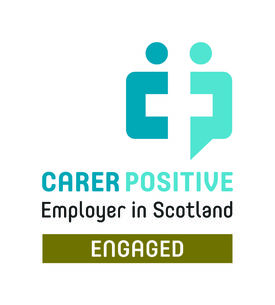L is for Legacy Benefits and the Move to Universal Credit
Date published: 2nd December 2020 egacy Benefits and the to Move to Universal Credit
egacy Benefits and the to Move to Universal Credit
What is a legacy benefit?
A legacy benefit is a benefit which is being replaced by Universal Credit . There are six legacy benefits:
- Income-based Jobseekers Allowance
- Income-related Employment and Support Allowance
- Income Support
- Housing Benefit
- Child Tax Credit
- Working Tax Credit
I am currently in receipt of a legacy benefit. Is this going to end?
If you are currently claiming a legacy benefit, you can stay on this for the moment - unless you have had a change of circumstances. For example, you split up with a partner or move to a different council area. If you haven’t had a change of circumstances, you won’t usually need to claim Universal Credit until the Department for Work and Pensions (DWP) sends you a letter. This is called managed migration. The DWP are aiming for all legacy benefit claimants to be moved onto Universal Credit by 2024.
Can I choose to claim Universal Credit before 2024?
You can choose to move onto Universal Credit at any time, however once you have you made a claim for Universal Credit you will not be able to go back onto legacy benefits.
What change in circumstances would result in me needing to claim Universal Credit?
If your work, home or family situation changes, you might need to move on to Universal Credit. The most common changes are:
Changes to your relationship
- If you have split up with your partner: You will need to check if the benefits are in your name. They will be in your name if the benefit letters are addressed to you. You can stay on your old benefits if they are in your name. If they are not in your name, you will need to claim Universal Credit.
- If you move in with your partner: You will need to make a new joint claim for Universal Credit if you start living with your partner and one of you is already claiming Universal Credit. You will be able to stay on your current benefits if your partner isn't already getting Universal Credit and doesn’t earn too much to get a benefit, you and your partner don’t get Child Tax Credits or Working Tax Credits, you and your partner don't get income-based JSA and you don’t have any children
Changes to your family
- If you have your first child - You will need to claim Universal Credit - unless you are already claiming Working Tax Credits. If you’re on Working Tax Credits and you have your first child, you can claim Child Tax Credits instead.
- If you have another child - You can stay on your benefits if you have another child and are already in receipt of Child Tax Credits.
- Your youngest child turns 5 – You will need to claim Universal Credit if you are in receipt of Income Support, a lone parent and not a full-time carer for someone who’s sick or disabled
Changes to where you live
- You move to an area with a different local council – You will have to claim Universal Credit if you are in receipt of Housing Benefit.
- You move to a different property in the same council area - You can stay on Housing Benefit if the claim was in your name.
Changes to your work situation
What you need to do will depend on the benefits you are claiming and how your work situation has changed. For further information click here.
Is there anyone who cannot claim Universal Credit?
You can’t get Universal Credit if you are getting, or recently stopped getting a benefit with a severe disability premium (SDP). If you are or have been getting SDP you can still apply for legacy benefits.
To get an SDP with a benefit, you must also get a disability benefit like Personal Independence Payment (PIP) or Attendance Allowance.
- You might get an SDP with:
- income-based Jobseeker’s Allowance
- income-related Employment and Support Allowance
- Income Support
- Housing Benefit
Check your benefit award letter to see if you are getting an SDP – it usually says you are entitled ‘because you are severely disabled’. Check if you could get an SDP.
Will I be worse off on Universal Credit?
If you move to Universal Credit as part of the managed migration process you will receive a transitional protection payment. This makes sure people who are moved on to Universal Credit by the DWP don't get less money.
If you choose to move to Universal Credit or move as a result of a change in circumstances you will not get the ‘transitional protection’ payment, therefore may be worse off on Universal Credit.
Where can I get more advice?
CARF has specialist Help to Claim advisers who can advise whether Universal Credit is right for you and provide support and assistance making a claim. Please contact 0345 140 0095 for further information.
Advice and support is also available over the phone via a National Helpline. This can be contacted on 0800 023 2581 and is open 08:00 – 18:00, Monday to Friday.






